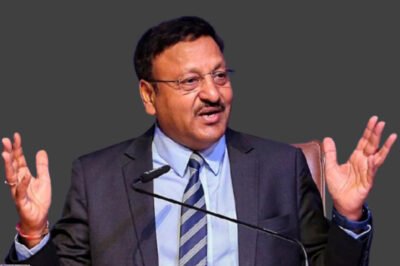The Election Commission of India (ECI) has announced February 5 as the polling date for the Delhi Assembly elections, a Wednesday, which has raised questions about the decision to schedule voting on a weekday instead of a weekend. Chief Election Commissioner (CEC) Rajiv Kumar provided clarity on this choice, citing logistical and strategic reasons aimed at ensuring maximum voter participation and smooth electoral processes.
The Election Schedule
The elections for all 70 constituencies of the Delhi Assembly will take place on February 5, 2025, and the counting of votes is scheduled for February 8. The announcement has kickstarted political campaigns across the capital as parties gear up for a tightly contested election.
Reasons for Choosing a Weekday
CEC Rajiv Kumar explained the rationale behind selecting a weekday for polling, emphasizing voter accessibility, operational efficiency, and logistical considerations.
- Encouraging Voter Turnout:
Contrary to the assumption that weekend voting increases turnout, data from past elections shows that weekdays can also see high participation, provided there are adequate provisions for facilitating voters. Wednesday was chosen to provide a mid-week opportunity for people to cast their votes, with government offices and schools closed for polling day. - Avoiding Overcrowding on Public Holidays:
Scheduling elections on weekends often overlaps with personal travel plans or leisure activities, leading to lower turnout. A mid-week polling date minimizes such conflicts and ensures voters are more likely to prioritize casting their votes. - Logistical Efficiency:
Weekday voting allows the Election Commission to better coordinate resources, including polling staff, security personnel, and transport arrangements, ensuring a seamless electoral process.
Provisions for Voter Accessibility
To address potential challenges associated with weekday voting, the ECI has announced several measures to facilitate voter participation:
- Paid Leave for Employees:
February 5 will be declared a paid holiday for all employees in the public and private sectors, ensuring no one has to choose between work and voting. - Extended Voting Hours:
Polling stations will remain open longer to accommodate voters with tight schedules. - Accessible Voting:
Special arrangements will be made for senior citizens, persons with disabilities, and first-time voters, ensuring an inclusive electoral process.
Political and Public Reactions
The decision to hold elections on a Wednesday has drawn mixed reactions from political parties and the public.
- Political Response:
While major political parties, including the Aam Aadmi Party (AAP), Bharatiya Janata Party (BJP), and Congress, welcomed the announcement, they also emphasized the importance of voter awareness campaigns to ensure high turnout on a weekday. - Public Sentiment:
Some citizens expressed concerns about managing work commitments despite the holiday declaration. However, others appreciated the mid-week polling as a way to avoid crowded weekends.
Historical Context of Polling Days
The ECI has a history of scheduling elections on weekdays to ensure smooth operations and better crowd management. For instance, in several state and general elections, weekday voting has yielded satisfactory voter turnout without significant disruptions. The Delhi Assembly election follows this trend, with the aim of achieving a well-organized electoral process.
Conclusion
The decision to schedule the Delhi Assembly election on February 5, a Wednesday, reflects the Election Commission’s strategic planning to maximize voter participation and streamline logistics. While the choice has sparked debate, the comprehensive measures announced by the ECI aim to ensure that every eligible voter has the opportunity to exercise their democratic right. As Delhi gears up for another decisive electoral battle, the focus will remain on fostering an inclusive and accessible voting environment.








Leave a Reply